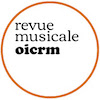18e colloque annuel de la Society for Musicology in Ireland (SMI), en ligne, Université de Dublin, 29-31 octobre 2020.
Conférencier d’honneur : Pr Julian Johnson (Regius Professor of Music, Royal Holloway, University of London), « The Blasphemy of Talking Beethoven in 2020. Listening again to the Heiliger Dankgesang ».
« The third movement of Beethoven’s String Quartet, Op. 132, might have made a good anthem for the year of Covid, not just because of its subtext of illness and convalescence, but also its links to confronting mortality alone, in isolation, and in a world where so many former certainties have been lost. This lecture is about listening – specifically to the Heiliger Dankgesang – but it’s also about how musicologists talk, write and think about such music. More than that, it’s about whether we even can, or should, talk about such music today. Because, in 2020, the 250th anniversary of the composer’s birth, talking about Beethoven has once again become deeply problematic.
While acknowledging the urgent political contexts for musicology’s current crises, this lecture argues that any worthwhile musicology is one that preserves the constitutive tension in its name – i.e., between the realm of aesthetic thought and experience on the one hand, and the realm of discourse on the other. To be true to that idea, I make room for the aesthetic presence of music, exploring the ways in which the Heiliger Dankgesang reflects on the tension between the sensuous and the linguistic, the sonorous and the discursive.
In this, Beethoven’s ‘song’ exemplifies a wider idea: that the muteness of music is not a lack that requires redeeming by discourse. On the contrary, by inverting the usual signifying order – privileging sound over syntax – music exerts its own specific critique. As Kant acknowledged in Beethoven’s lifetime, music resists the violence done to the sensuous particular by the discursive concept. My lecture thus concludes by returning to wider contextual issues to make an (unfashionable) case for the persistence of the aesthetic. A truly critical musicology, I argue, would resist the current silencing of music by an essentially sociological discourse. Far from being the domain of some ‘otherworldly’ withdrawal, it is precisely the aesthetic within music that enacts its radical potential. »
Plus d’informations, programme complet et inscription : cliquez ici.

